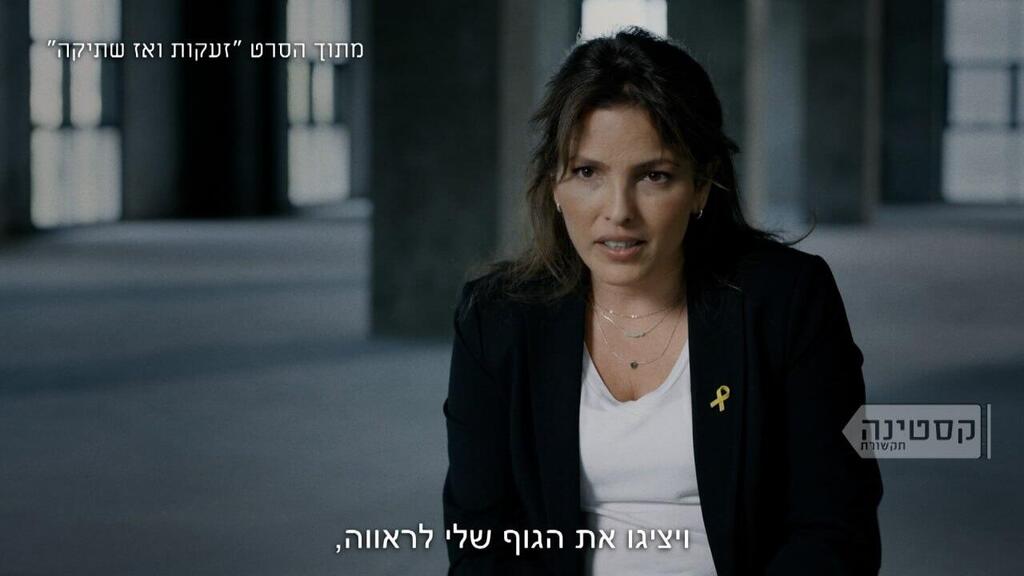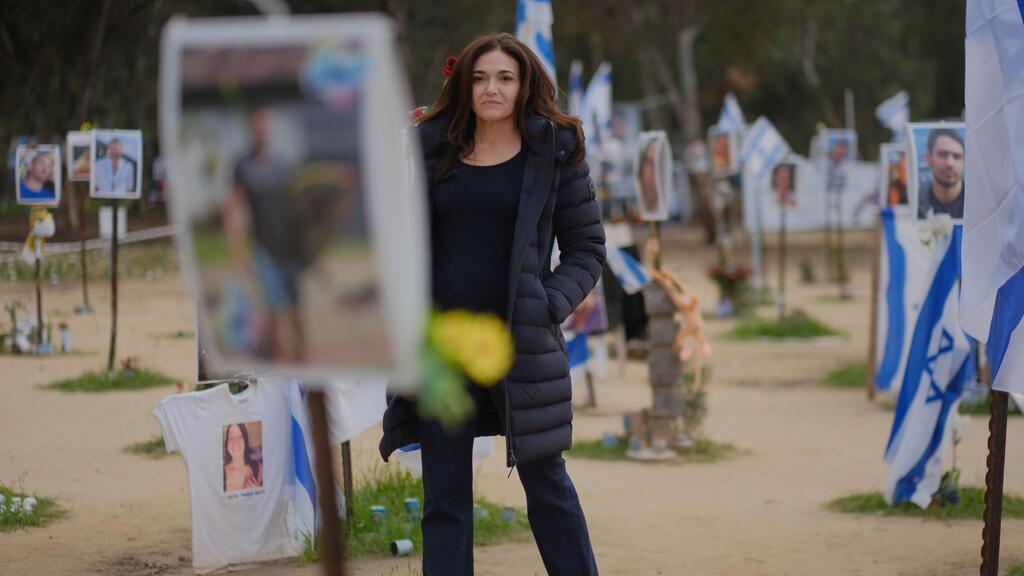Getting your Trinity Audio player ready...
Trailer of 'Screams Before Silence'
Apparently, there is no better and more useful way to summarize the documentary "Screams Before Silence" than by using just one word: "important," "must," "shaking," etc. The chilling testimonies collected by director Anat Stalinsky and interviewer Sheryl Sandberg, former COO of the Meta company, are a summary of all the most horrible things we have seen, heard and imagined since October 7, gathered into a whole hour intended above all for the scum and the ignorant who still allow themselves to say that that these things never happened. Some of them are roaming college campuses in the United States these days with the feeling that they are terribly righteous and pure. Astonishingly, even within the State of Israel there are abominable voices that deny the dimensions of the war crimes committed by Hamas.
The testimony of Amit Soussana is not only the highlight of the documentary, but probably one of the most difficult moments recorded in the history of journalistic engagement with sexual violence - a topic that has been at the heart of documentary work since the start of the MeToo revolution. Soussana 's courage and heroism, both in the shocking situation and in her ability to tell about what happened there, are unimaginable. There is deep sorrow that only because of a terrible trauma does a person happen to become acquainted with such an impressive personality as hers, but it is essential to tell her that the choice to speak is not self-evident and her appearance is no less than sacred work. Of course, these things are true for all the participants, whether they experienced the horror on their body and soul or were only exposed to it as part of that black day.
2 View gallery


Former hostage Amit Soussana talks about Hamas' sexual violence in a scene from 'Screams Before Silence'
(Photo: Kastina Communications,'Screams Before Silence')
But beyond "important" and the other justified superlatives, "Screams Before Silence" (available to watch now on YouTube) overflows with emotions such as rage and helplessness, and is not only a "documentation," but also a call to action. The emotional aspect swells because the descriptions and reconstructions – and the filmmakers' wise choice not to use gruesome images – give the feeling of a nightmarish trip in a time machine to the moment when innocent people were abandoned to their fate. Beyond the terrible symbolism that exists in sexual violence, it has to teach another facet about the huge security failure, under which the terrorists allowed themselves not only to massacre but also to abuse without being stopped.
The call to action is threefold: First, as requested, to slap the truth in the face of the liars. Second, it is impossible to watch "Screams Before Silence" without considering the fact that it is not only about what has already happened, but what is still very likely happening to those of the hostages, both male and female, who are still alive.
When Kastina Communications (also behind the production of the film NOVA#, which was both an essential service to the public and a documentary of stylistic brilliance) was launched, we could never have imagined that there would be an obligation to address the possibility that we would be exposed to evidence even more horrifying than that of Soussana. And here, 202 days have already passed and the head does not stop thinking about unwanted pregnancies, violence of the most diabolical kind and the enormous mental strength required to last. In the second call to action, every government minister should watch "Screams Before Silence" to understand how vital the return of the kidnapped hostages is, more than any other goal, but maybe Minister Bezalel Smotrich will complain again that it will disturb his sleep.)
The third action is relevant to the person who leads the film. Sheryl Sandberg is obviously not that of serious Israeli documentarians such as Anat Goren, and her presence in the end is intended to mark the standing of one of the most successful women in the world on the side of truth, justice and basic morality. But Sandberg got where she did thanks to her contribution to the well-oiled machine of spreading disinformation, propaganda and fake news that is Facebook.
In a beautiful moment toward the end of the film, Sandberg moves from the interviewer's chair to the interviewee's. Of course, this is neither the time nor the place for her to talk about Facebook's part in shaping a discourse where even a documented massacre is subject of denial efforts. But if she is honest in saying that the film is "the most important thing I've done in my life" and "everything I've done has led me to this moment," then she must also act where she really has an impact; Listen carefully to "Reborn," the beautiful song by Ninet Tayeb that closes the film with a suffocating sequence - and be reborn.





